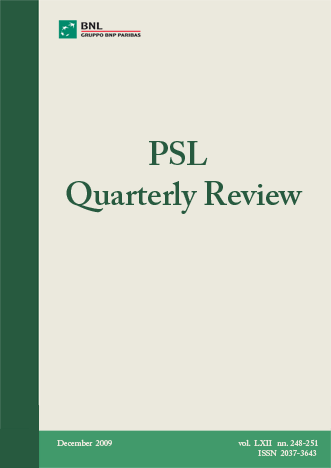The developing recession in the United States
DOI:
https://doi.org/10.13133/2037-3643/9443Keywords:
Financial Crisis, Sustainability, Public Debt, Private DebtAbstract
The strategic prospects for the US (or any) economy can be evaluated by reference to the financial balances of its main sectors, which are related to one another by a consistent accounting system. The 1992-2000 expansion, accompanied by a rising budget surplus, was greeted by a storm of self-congratulation in the US and widely expected to last indefinitely. But inspection of the balances revealed that the configuration of driving forces was unsustainable and that the fiscal stance should drastically change at some stage. Eventually, there has indeed been a huge fiscal expansion which warded off an incipient recession. But the new configuration of financial balances again reveals an unsustainable situation, with government, foreign and private debt all rising excessively fast. Sustained growth in the medium term can only be achieved if there is now a prolonged expansion in net export demand--for which the rest of the world does not seem to be well prepared. Paper originally published in the BNL Quarterly Review, vol. 57 n. 229, June 2004, pp 131-139.
JEL Codes: F3, G1, N1, B5
Downloads
Published
How to Cite
Issue
Section
License



